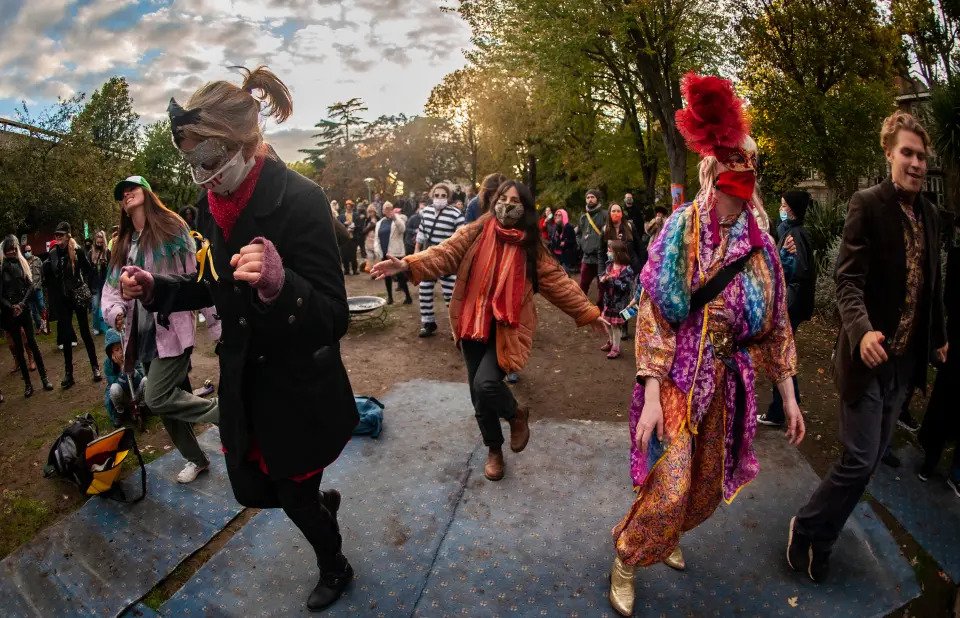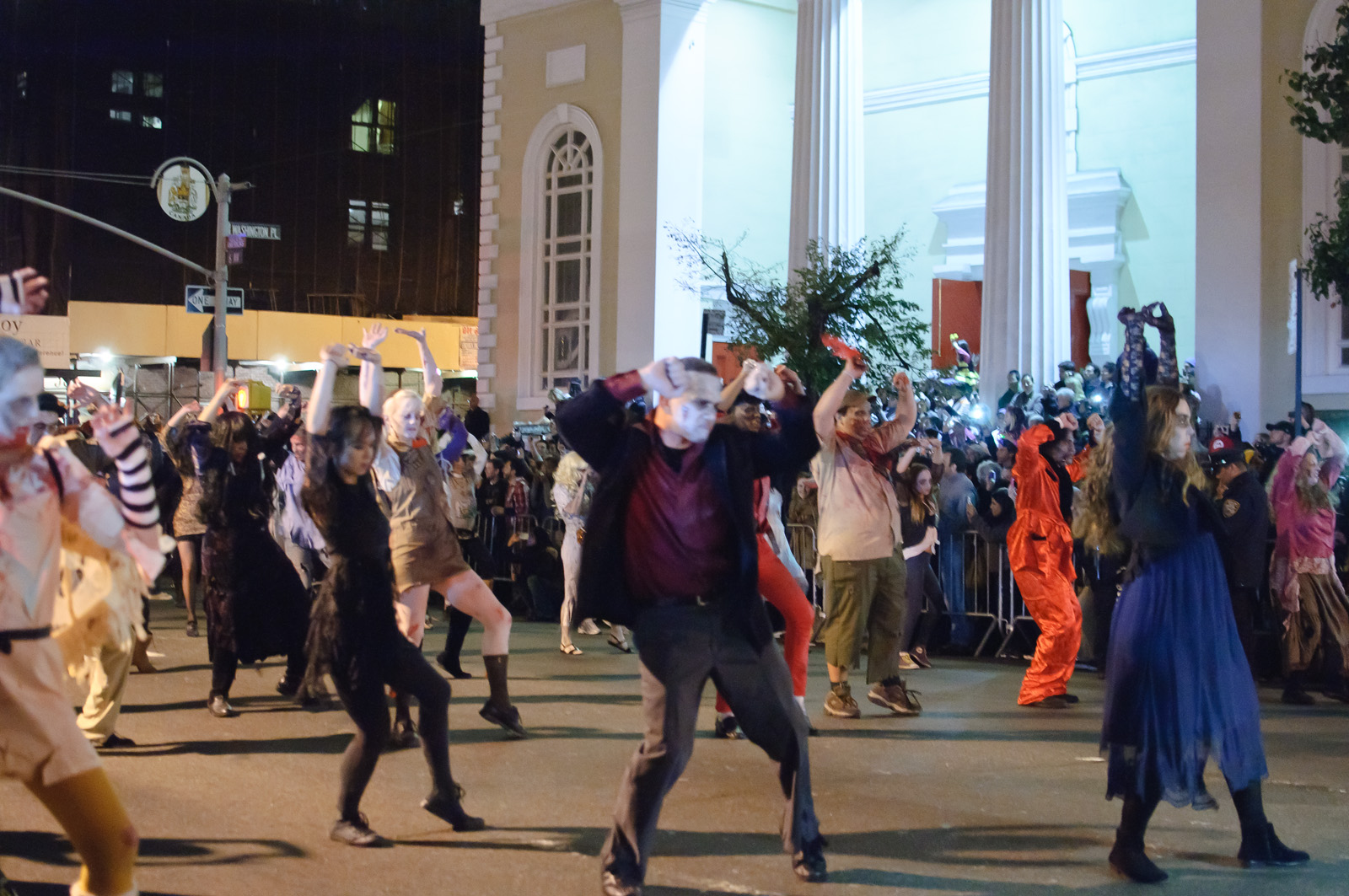At the core of Museum of Care and David Graeber Institute is the idea of Carnival. The Museum of Care emerged from the Carnival4David, held in David’s memory, that took place in 250 sites around the world. The Carnivalesque tradition was followed by DGI, which is building the faculty of Carnival in St. Vincent and Grenadines.
We’ve temporarily paused the reading group meetings dedicated to Bakhtin, as our organizer is currently busy. If anyone would like to take over the project, we’d be very happy. In the meantime, we’re continuing to collect links related to Bakhtin and the publication of his new books, and we’ll keep sharing them here.
Why Carnival?
The carnival is one of the oldest institutions in the world. In one form or another, it is present in every culture. It is usually thought of as just a large party but, more importantly, the carnival is an occasion for social renewal, where ordinary life is turned upside down, where social roles and identities are being changed. Employing music, costumes, sets, storytelling, comedy, and more, the carnival initiates a totally new social reality. That is why what starts as a carnival often ends up as a revolution.
There are many theater, film and television schools and institutes in the world, but there are not many institutions devoted to the training of practitioners and scholars of the carnival. The David Graeber Institute is committed to building just such an institution in Saint Vincent and the Grenadines, where this summer’s DGI Discussion circles will address the carnival as a central concept.
In addition, DGI is organizing an online reading group and a talk series on the carnival and its democratic and revolutionary spirit.

About the Carnival’s Reading Group
We will collectively read one of David’s favorite books, Mikhail Bakhtin’s Rabelais and His World.
The book can be found here.
The reading group will meet by Zoom on the last Thursday of every month at 7:00 pm GMT and will last 60 minutes. The first meeting will take place on October 31, 2024. We are planning to include up to 20 people who can commit to participating in every session throughout the year (12 months – 12 sessions). If you want to join us, please, write to info@davidgraeber.org
Mikhail Bakhtin (1895–1975) is the most famous Russian philosopher of the 20th century. Bakhtin’s notions of the “chronotope”, “polyphony” and “carnivalization” influenced thinkers such as Julia Kristeva. David Graeber took only two books with him on his two-year trip to Madagascar, a novel by Dostoevsky and Bakhtin’s François Rabelais. Bakhtin mostly wrote in obscurity during his life and became known only after his death. Besides his book on Dostoevsky, Bakhtin’s masterpiece is Rabelais and His World (1940), to which this reading group is dedicated. He wrote the book briefly after losing one leg due to an illness. The Rabelais book develops original theories of carnival and collectivity, the materiality of time, bodily transformation, the grotesque, laughter and the transgression of power. During carnival, Bakhtin wrote, all people are equal. Old authorities are suspended and freedom reigns.
Text excerpts to read from Bakhtin’s Rabelais book: (following this pdf): 20-25 pages max. for each session.
We also going to read a brief excerpt by Rabelais himself, from Gargantua and Pantagruel (1530s)
Session 1
31-10-2024
Introduction: Rabelais and His World; on carnival: pp.1-12; on collectivity and the body: pp. 18-23; on the grotesque and the mask: pp. 39-40.
Session 2
28-11-2024
Chapter One: Rabelais in the History of Laughter; on Rabelais: pp. 59-61; on laughter: pp. 66-73; on the ‘feast of fools’: pp. 74-75; pp. 78-82; on parody: pp. 87-95.
Session 3
30-01-2025
Chapter One: Rabelais in the History of Laughter; on mediaeval humour: pp. 96-103; on obscenity: pp.109-110; Rabelais and revolution: p. 119; on seriousness: pp. 122-124; on the belly: pp. 126-127; on the historicity of jokes: pp. 134-136; Rabelais’s laughter: pp. 140-144.
Session 4
27-02-2025
Chapter Two: The Language of the Marketplace in Rabelais
Public Talks
We will do our best to arrange for a public discussion, dialogue, or guest speaker talk before each reading group meeting. Our speakers will explore carnival practices in the contexts of activism or research, helping us relate the historical tradition of the carnival to contemporary situations. The public talks will start at 7:00 pm GMT on the last Thursday of every month and will be open to the broad public and will be following up with the reading group at 8 pm.
We have asked Peter Sahlins, the author of Forest Rites: The War of the Demoiselles in Nineteenth-Century France, to join our collective discussion about Mikhail Bakhtin and the role of carnival in shaping our political reality.
For the opening of our reading group we prepared a collective AptArt exhibition Make Carnival not War, prepared by curators Nika Dubrovsky, Clive Russell and John Phillips.
We invite everyone to dress up for the occasion and to Zoom in from in-person parties.
Please follow this steps to subscribe to our mailing list:
- Send email to reading-bakhtin-subscribe@
lists.riseup.net. Make sure the account you send the mail from is the one you want subscribed to the list. - You will receive an email asking you to confirm the subscription. Just reply to this email.
- You will receive confirmation of your subscription. Done!















